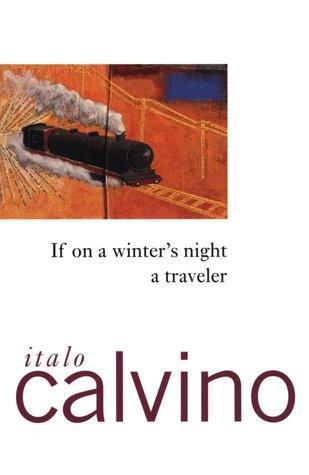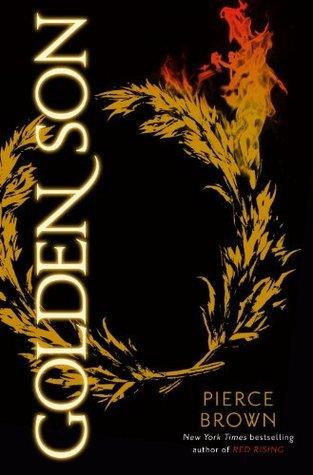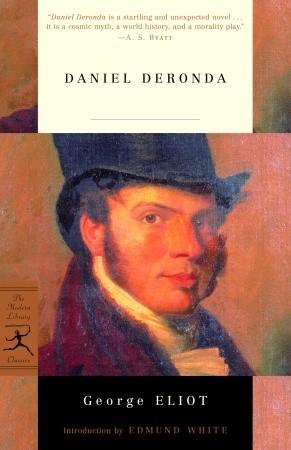If on a winter’s night a traveler by Italo Calvino Book Summary
Discover the enchanting world of Italo Calvino's "If on a winter's night a traveler" in our comprehensive article. Dive into a detailed book summary, explore key insights, and read an engaging review that captures the essence of this literary masterpiece. Perfect for fans and newcomers alike!
If on a winter's night a traveler Book Summary
Italo Calvino's "If on a winter's night a traveler" is a postmodern masterpiece that brilliantly deconstructs the traditional novel format while celebrating the pure joy of reading. This innovative work follows "you," the reader, as you attempt to read a book, only to encounter a series of interrupted stories that blur the lines between fiction and reality. Through its metafictional structure, Calvino explores themes of identity, love, and the relationship between reader and text, creating an unforgettable literary experience that challenges conventional storytelling while delivering profound insights about the nature of narrative itself.
Enhance your reading journey with our detailed Who Moved My Cheese? Book Summary, Review & Key Insights, offering valuable lessons on embracing change and achieving success.
If on a winter's night a traveler by Italo Calvino - Introduction
I had no idea a book could make me question the very act of reading itself until I picked up If on a winter's night a traveler by Italo Calvino. The surprising thing? It’s a novel that’s actually about you—the reader—and me, the traveler trying to follow stories that keep slipping away. It made me rethink how we engage with books, how every reader’s experience is unique, and how stories are as much about the gaps and interruptions as the plot.
I initially grabbed this because I was curious about Italian literature and kept hearing it’s a classic that plays with magical realism and literary fiction in a way that’s totally fresh. Plus, it’s only about 260 pages, so it felt like a manageable dive into 20th-century literature without being overwhelming.
If you love getting lost in novels but also enjoy a bit of meta-fiction—books about books—this one’s for you. It’s perfect for anyone who likes to think about storytelling itself, not just the story. And if you’re into fiction that’s clever, playful, and a little mind-bending, you’ll appreciate how Calvino blends Italian literature with magical realism and a kind of literary puzzle.
Give yourself around 6-8 hours to read it, but honestly, you might find yourself reading it twice just to catch all the layers. I’m telling you, it’s not just a book; it’s an experience that’ll change how you look at novels forever.
What is If on a winter's night a traveler About?

"If on a winter's night a traveler" by Italo Calvino is a metafictional novel that explores the nature of storytelling and the reader's experience through a fragmented narrative where the reader becomes a character in the story. The main message emphasizes the relationship between the reader and the text, highlighting the joy and frustration of engaging with literature. Key concepts include the idea of interrupted narratives, the quest for meaning in literature, and the interplay between reality and fiction, ultimately reflecting on the transformative power of stories.
About Book Author - Italo Calvino
Tonight, we have someone who truly understands the intricate dance between reader and text. Italo Calvino didn't start out as the architect of narrative puzzles we know from If on a winter's night a traveler.
- What's interesting about Italo Calvino is his early life; born in Cuba to agronomist parents, he initially studied agriculture before literature claimed him. This scientific grounding, perhaps, lent a unique precision to his later literary experiments. His journey into the heart of storytelling wasn't accidental. His deep engagement with the Oulipo group, exploring literary constraints and the very structure of narrative, was a pivotal experience. This fascination, already budding in the playful explorations of Cosmicomics, directly fueled the creation of If on a winter's night a traveler. He possesses an uncanny ability to dissect how stories work, not just to tell them, making him uniquely qualified to explore the reader's journey and the nature of narrative itself. His explorations, from the fantastical to the framework of fiction, as seen in Invisible Cities, show a mind constantly questioning what a story can be.
More Books To Find
If on a winter's night a traveler - Book Overview
It's essentially a story about stories. The main character, who is you, tries to read a book but keeps getting interrupted by different narratives. It’s like starting a movie, only to have the DVD skip to random scenes.
Calvino wrote it to explore the nature of reading and how we connect with stories. He wanted to challenge the traditional narrative structure and show how fragmented our attention can be in the modern world. It’s a reflection on how we often crave a complete story but life, much like this book, is full of interruptions and distractions.
What makes it different is its self-awareness. It’s not just a book; it’s a conversation about the act of reading itself. While most novels aim to transport you into another world, this one pulls you back and makes you think about your role as a reader. It’s like being in a funhouse mirror where you see both the reflection and the reality.
One specific moment that stuck with me is when the protagonist realizes that each interrupted story reflects a different part of his own life. It’s a poignant reminder that every book we read influences us in unexpected ways, often mirroring our own experiences. It’s a unique blend of philosophy and fiction that really makes you reconsider how you engage with literature.
Key Insights of If on a winter's night a traveler
1. Fragmentation of Narrative: The novel employs a non-linear structure, presenting multiple beginnings of different stories. This fragmentation reflects the complexity of reading and the myriad paths a narrative can take, emphasizing the reader's role in creating meaning.
2. Reader's Experience: Calvino explores the relationship between the reader and the text. The protagonist, who is also a reader, embarks on a quest for completion, highlighting the emotional investment and expectations that come with reading. This meta-narrative invites readers to reflect on their own experiences.
3. The Nature of Storytelling: The book delves into the essence of storytelling, questioning what constitutes a story. It examines how stories are interconnected, often leading to unfinished tales, which mirrors real life where not all narratives reach a conclusion.
4. The Role of the Author: Calvino plays with the concept of the author's presence in storytelling. The narrative suggests that authors are not just creators but also participants in the reading experience, influencing how stories are perceived and interpreted.
5. Escapism and Reality: The protagonist’s journey highlights the theme of escapism, where literature serves as a refuge from reality. The interplay between the fictional worlds and the real world raises questions about the purpose of literature and its impact on our lives.
Who Should Read This Book
"If on a winter's night a traveler" by Italo Calvino is a must-read for literature enthusiasts, particularly those who appreciate experimental storytelling and metafiction. It's ideal for readers who enjoy exploring the nature of narrative and the relationship between the reader and the text. Fans of philosophical and thought-provoking works will find Calvino's unique structure and playful prose captivating. This book also appeals to anyone seeking a fresh perspective on the reading experience, making it perfect for both casual readers and literary scholars alike.
Read If You Are
- a lover of experimental literature and unique narrative structures
- someone who enjoys stories that explore the nature of reading and storytelling
- a reader seeking a thought-provoking and immersive literary experience
Skip If You Are
- looking for a straightforward, linear narrative
- not interested in metafiction or experimental storytelling
- seeking a traditional plot with clear character development
Important Takeaways from this Book
-
Start a Reading Journal: Write down your thoughts and feelings about each book you read. This practice enhances your comprehension and retention while deepening your connection to the material. No prerequisites; just grab a notebook or use a digital app.
-
Experiment with Different Genres: Choose a genre you typically avoid and read one book from it this week. This broadens your perspective and enriches your understanding of storytelling. Consider your current reading habits and be open to new experiences.
-
Engage in Active Reading: While reading, underline or highlight passages that resonate with you. This action helps you engage more deeply with the text and fosters critical thinking. Ensure you have a highlighter or pen handy during your reading sessions.
-
Join a Book Club: Find or create a local or online book club to discuss your reading experiences. This social interaction enhances your enjoyment and understanding of literature while building community. Look for groups on social media or local libraries to connect with like-minded readers.
-
Set a Daily Reading Goal: Dedicate at least 20 minutes each day to reading. This consistent practice cultivates a habit that leads to greater knowledge and personal growth over time. Make sure to find a quiet space where you can focus without distractions.
Book Review
I picked up "If on a winter's night a traveler" expecting a straightforward narrative, but what I got was a labyrinth of stories within stories that challenged my perception of reading itself. Calvino's inventive structure initially threw me off, but as I settled in, I found it to be a fascinating exploration of narrative and the reader's experience.
One of the book's greatest strengths is its playful writing style. Calvino’s prose is rich and engaging, with lines that made me pause and reflect. For example, the way he describes the act of reading as a journey resonated deeply with me, especially in the opening chapters. The shifts between different narratives kept me intrigued, though I sometimes found the pacing uneven. Some sections felt rushed, while others lingered too long, which occasionally broke my immersion.
While I appreciated the intellectual depth, there were moments when I wished for a more cohesive storyline. The fragmented nature might alienate readers looking for a traditional plot, and I can see how it might frustrate those who prefer a clear resolution.
Comparatively, it reminded me of works by Borges, where the focus is on ideas rather than characters. However, Calvino’s approach is more whimsical, making it feel lighter despite its complexity.
Overall, I’d recommend this book to readers who enjoy experimental fiction and philosophical musings about literature. If you prefer linear storytelling or character-driven plots, you might find it challenging. For me, it was a thought-provoking experience that expanded my understanding of what a novel can be.
Final Thoughts
If I'm being honest, finishing If on a winter's night a traveler felt like an exhilarating journey through a labyrinth of narratives. My overall takeaway is that Calvino brilliantly intertwines the act of reading with the experience of life itself, making you reflect on how stories shape our reality.
I'd definitely recommend this if you're a fan of meta-narratives or enjoy exploring the boundaries of storytelling. However, skip this one if you're looking for a straightforward plot or traditional character development; it’s definitely not for everyone.
The thing that surprised me most was how each narrative thread captivated me, yet left me yearning for more, almost like a cliffhanger that never resolves. I can see this book sticking with me for months, especially its themes of reader engagement and the joy of discovery.
As for rereading it, I think I’d prefer to dive into the full book again rather than just a summary. There’s so much nuance that deserves a second look. On a personal note, my reading experience was like peeling back layers of an onion—each layer revealing something profound and thought-provoking. It’s a book that lingers in your mind long after the last page.
Frequently Asked Questions
How long does it take to read If on a winter's night a traveler?
The average reading time for "If on a winter's night a traveler" by Italo Calvino, which is 260 pages long, is approximately 6 to 8 hours, depending on your reading speed and engagement with the text.
What makes "If on a winter's night a traveler" different from other books in this genre?
If on a winter's night a traveler stands out for its unique narrative structure, blending multiple stories and breaking the fourth wall. Calvino invites readers into the act of reading itself, creating an interactive experience that challenges traditional storytelling and engages the audience on a deeper level.
Who is the target audience for If on a winter's night a traveler
The target audience for "If on a winter's night a traveler" includes readers who appreciate experimental literature, metafiction, and philosophical themes. It appeals to those who enjoy complex narratives and introspective storytelling, as well as fans of Italo Calvino's unique style and innovative approach to fiction.
Are there any criticisms or limitations of If on a winter's night a traveler
Critics often highlight the book's fragmented narrative as a limitation, arguing it can be disorienting. Some readers may find its metafictional style challenging, leading to a lack of emotional connection with characters. Additionally, its complexity may deter those seeking a traditional linear storyline.
What is the main theme of If on a winter's night a traveler by Italo Calvino
The main theme of "If on a winter's night a traveler" is the nature of reading and storytelling. It explores the relationship between the reader and the text, emphasizing the fragmented experience of narrative and the quest for connection in a world of incomplete stories.
Tags:
If on a winter's night a traveler, If on a winter's night a traveler Book, If on a winter's night a traveler Book Rating, If on a winter's night a traveler Book Review, If on a winter's night a traveler Book Summary, If on a winter's night a traveler By Italo Calvino, If on a winter's night a traveler Description, If on a winter's night a traveler Short Summary, Italo Calvino

Michel Fisher
Michel Fisher is a passionate fiction enthusiast and book blogger who writes about emotional reads, character-driven stories, and contemporary romance authors that captivate hearts and minds.

If on a winter's night a traveler
Book Overview
Description
If on a Winter's Night a Traveler is a marvel of ingenuity, an experimental text that looks longingly back to the great age of narration—"when time no longer seemed stopped and did not yet seem to have exploded." Italo Calvino's novel is in one sense a comedy in which the two protagonists, the Reader and the Other Reader, ultimately end up married, having almost finished If on a Winter's Night a Traveler. In another, it is a tragedy, a reflection on the difficulties of writing and the solitary nature of reading. The Reader buys a fashionable new book, which opens with an exhortation: "Relax. Concentrate. Dispel every other thought. Let the world around you fade." Alas, after 30 or so pages, he discovers that his copy is corrupted, and consists of nothing but the first section, over and over. Returning to the bookshop, he discovers the volume, which he thought was by Calvino, is actually by the Polish writer Bazakbal. Given the choice between the two, he goes for the Pole, as does the Other Reader, Ludmilla. But this copy turns out to be by yet another writer, as does the next, and the next.The real Calvino intersperses 10 different pastiches—stories of menace, spies, mystery, premonition—with explorations of how and why we choose to read, make meanings, and get our bearings or fail to. Meanwhile the Reader and Ludmilla try to reach, and read, each other. If on a Winter's Night is dazzling, vertiginous, and deeply romantic. "What makes lovemaking and reading resemble each other most is that within both of them times and spaces open, different from measurable time and space."
Key Points
Meta-narrative exploration
Characters
The reader, Ludmilla Vipiteno, Lotaria Vipiteno, Ermes Marana, Silas Flannery, Irnerio
Publisher
L&OD Key Porter
First Publish Date
10/28/79
Awards
Ars Translationis (2010), Ein Buch für die Stadt (2004)





